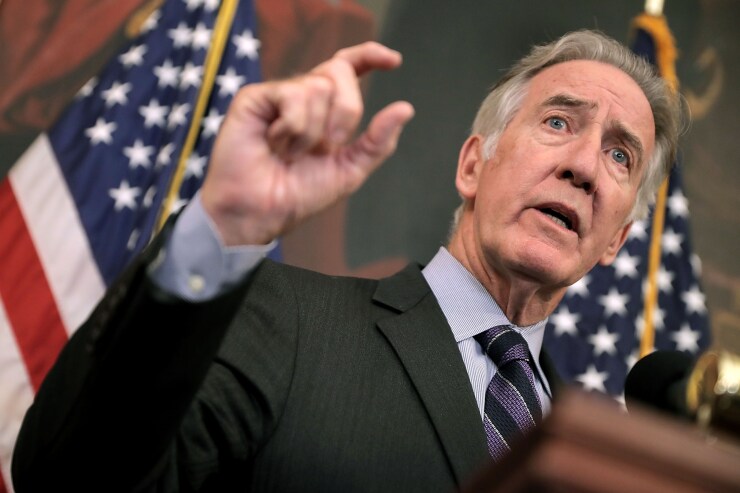The Internal Revenue Service and the Treasury Department have reversed course on requiring senior citizens to file a “simple tax return” in order to receive a stimulus payment as part of the coronavirus package passed by Congress last week.
An
The Treasury had been planning to rely on information from 2018 and 2019 tax returns to send out the stimulus payments, but now it will also use information from Social Security forms.
The Treasury and the IRS said Wednesday evening that Social Security beneficiaries who aren’t typically required to file tax returns won’t need to file an abbreviated tax return to receive an economic impact payment. Instead, the payments will be automatically deposited into their bank accounts.
“Social Security recipients who are not typically required to file a tax return need to take no action, and will receive their payment directly to their bank account,” said Treasury Secretary Steven T. Mnuchin in a statement.
The IRS said it will use the information on the Form SSA-1099 and Form RRB-1099 to generate $1,200 economic impact payments to Social Security recipients who didn’t file tax returns in 2018 or 2019. Social Security recipients will receive the stimulus payments as a direct deposit or by paper check, just as they would usually receive their benefits.
The change comes after pressure from lawmakers, including House Ways and Means Committee chairman Richard Neal, D-Mass., who earlier in the week had urged the Treasury to drop the requirement.
“This reversal gets us one step closer to accomplishing what we set out to do in the CARES Act — get money in the pockets of struggling Americans as soon as possible,” Neal (pictured) said in a statement Wednesday. "After being inundated with concerns from constituents, yesterday, Ways and Means Democrats and I called on the Treasury Department to find a solution that would ensure our most vulnerable populations receive their economic impact payments without complications or undue burden. I am relieved that Secretary Mnuchin has heeded that call, but our work is not done. Now, Treasury should build on this progress and make the same automatic payment to some veterans and those who receive Supplemental Security Income (SSI). I urge the Trump administration to make it easier for all individuals eligible for aid to access this new, vital support during the coronavirus pandemic.”

Besides those who receive income from SSI, the CARES Act also leaves out children over the age of 16, including 17- and 18-year olds. Congress or the Treasury may need to address their needs as well, especially those who have lost their after-school jobs due to the coronavirus job cuts and are trying to save up money for college.
Neal’s Republican counterpart on the tax-writing Ways and Means Committee, Rep. Kevin Brady, R-Texas, also praised the Treasury’s reversal.
“Seniors need relief, and quickly, so I applaud the Trump administration’s decision to provide automatic coronavirus relief payments to Social Security beneficiaries,” Brady said in a statement Wednesday. “This will make it easier for seniors to receive their checks. Relief checks will come quickly and without hassle — vulnerable seniors and individuals with disabilities at risk should be able to avoid extra paperwork. The key to fast, timely action during this global pandemic is bipartisan solutions, not partisan bomb-throwing.”





